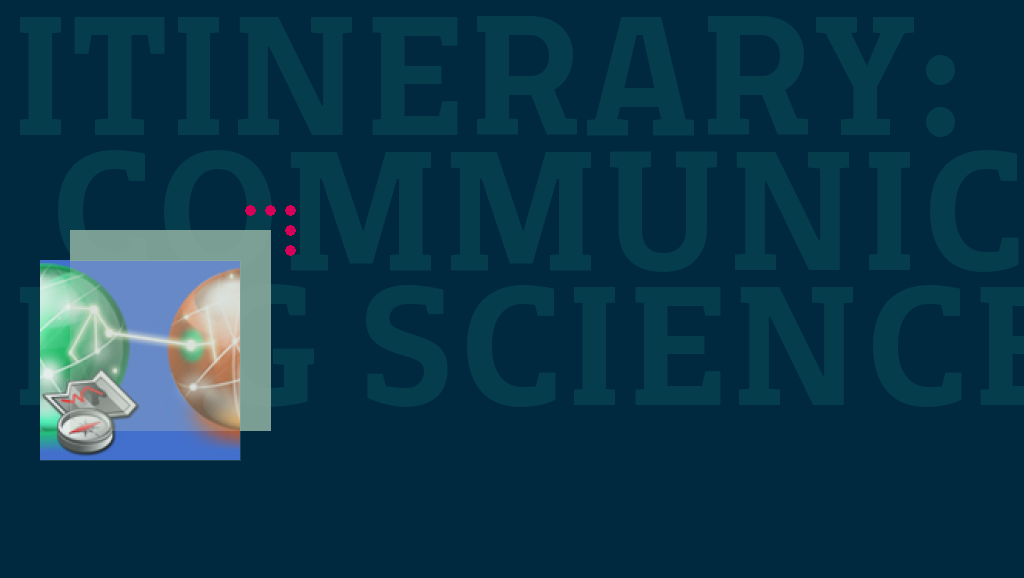In light of the Bassetti Foundation’s announcement of their involvement in the 2012 Public Communication of Science and Technology Network1 conference and related call for abstracts for funding, Jonathan Hankins reviews some of the related materials available on the foundation website.
———————–
The problem of the communication of science and innovation has been addressed many times over the years on the Bassetti Foundation website, and as the following review will show, it crops up in many articles covering a wide range of topics.
In 2002 Massimiano Bucchi published an interesting article in the journal ‘Nature’2 (also available here3) that aims to analyze the relationship between exposure to science in the media, information on biotechnologies and trust in science and attitude towards biotechnologies. The findings are interesting and some serious issues are raised about the effectiveness of science communication in the media and the difficulties encountered in trying to inform public opinion.
In 2003 Margherita Fronte conducted an interview with French philosopher Bruno latour4 in which the issue of a beneficial and possibly misleading portrayal of technology is raised, a problem that touches upon issues of obtaining funding and communicating complex scientific processes in lay person terminology.
In 2006 Foundation president Dr Piero Bassetti published an article in the journal “Impresa & Stato” entitled ‘Comunicazione dell’ innovazione’5 (the communication of innovation) in which he addresses the problems of innovation, knowledge and communication. The article is complex and addresses various aspects related to communication.
One question raised is that of the nature of communication related to copyright application and intellectual property rights. Another casts the spotlight on consumers. If a product is to be successful it must be accepted by members of society and governing and regulating institutions alike, and this implies choice taking, which in turn implies the communication of knowledge upon which decisions can be taken.
In 2007 Jeff Ubois touched upon the problem in his conversation with Lawrence Gasman6. The discussion is about nanotechnology and concludes with some thoughts about the reporting of such technologies in the press.
2007 also saw the publication of the European Commission report ‘Taking European Knowledge Society Seriously’, a document that was later translated into Italian and published through Rubbettino in 2008. To celebrate the Italian publication a conference was held at the Foundation at which authors bryan Wynne and Prof Mariachiara Tallachini discussed the project and publication. There are several articles related to this event and the related conference at the University of Bergamo available in Italian7 and also in English through this page.8
2008 also saw the Bassetti Foundation collaborate with the University of Bergamo and SISSA of Trieste on a related conference entitledBuilding a bridge between science and society; Searching for the foundations of the communication of science9 (Costruire un ponte tra scienza e società; Alla ricerca dei fondamenti della comunicazione della scienza10). The proceedings are described in the link above and video of the papers delivered is also available here11
The unedited transcription of the paper delivered at the conference by Silvano Tagliagambe entitled ‘Le nuove frontiere e strategie della comunicazione scientifica’ is also available here,12 and directly and thoroughly addresses the problem of the role of scientific communication in a knowledge society.
2009 was the year in which The Hastings Center published The Bioethics Briefing Book for Journalists, Policymakers, and Campaigns13. The book aims to enhance knowledge and provoke debate, and the introduction offers an interesting description of the problems regarding science communication today.
2010 saw the publication of an article looking at Ben Goldacre’s journalism work14 and his analysis of science reporting in the press. Goldacre’s book entitled ‘Bad Science’ is a well informed critique of medical (but not only) science reporting in the mainstream press.
In the same year Robert Winston published his book entitled ‘Bad Ideas’ that was reviewed on this website15. He argues the need for broader dialogue between science and society. He states that this must be a 2 way dialogue, that lay people should understand more about science in order to make informed choices and decisions about change, but that scientists also have to listen to the public.
2011 saw two articles directly related to communication. The first investigates the work of the Royal Society16 and its free publications and the second the choice made by the National Academic Press 17to make all of their publications freely available for online consultation. Both articles aim to show that high quality science information is freely available to those who look for it.
The review above is by no means meant to be exhaustive. Various other articles have the problem of communication running between the lines. The recently published article on cold fusion18 highlights the mass publication of unqualified press releases as scientific facts and Lennard Davis talked at length about science communication during his round table meeting here in Milan 19just to name but two examples.
Anybody requiring further reading might like to take a look at a 1985 report by e Royal Society ad hoc group entitled Public Understanding of Science20 and the BIS Science and Society website21.
















